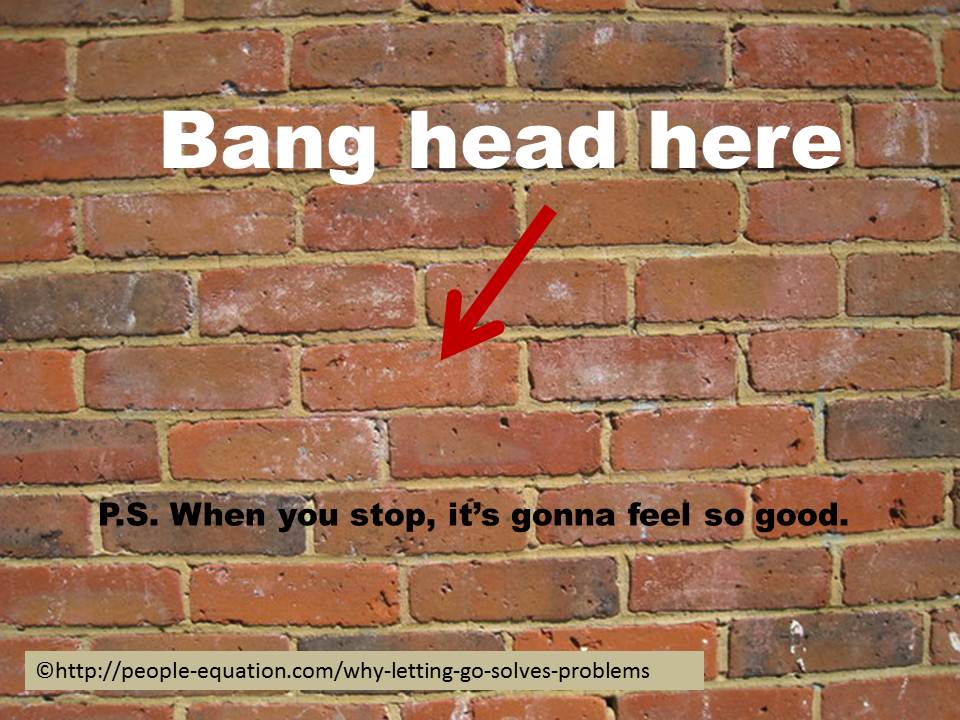Have you ever been confronted by a dilemma or problem that had you stymied? You know, one so vexing that it felt as no matter what you tried, a resolution seemed impossible? The impenetrable wall remains.
Surely you’ve heard the aphorism “Quitters never win and winners never quit”. Many would have you believe that to persevere is to win. So, you press on.
I have a suggestion. What if you surrendered yourself to the problem? That’s right, just let go of it. You scoff: That’s quitting. I’m not a quitter. Letting go is not quitting. You are not walking away from the problem or abdicating responsibility. Rather, temporary surrender allows you to be released from the need to solve the problem right now.
When you let go, you are yielding to the power that has, up to this point, paralyzed you from positive action. It’s like your mind suddenly has that vice grip of frustration removed. You are now free to process information in a new way.
But it’s not easy to “let go”, is it? Here are six suggestions to help you see your challenge in a new light:
1. Accept the problem. Start with the viewpoint that the situation is the way it is for a valid reason.
2. Go micro. Crawl inside the challenge, take up residence there and observe how it looks from this new angle.
3. Go macro. Pull up to 10,000 feet. Take the broader view – how does this situation make sense within the larger framework?
4. Identify the benefits. Ask, “What can I possibly learn from this?”
5. Let it be. Consider – what would happen if you just left the problem alone?
6. Get input. Seek out people who are not invested in this problem. Ask, “How do you view this situation?” Be open to what they have to say. It’s likely that you have somehow contributed to the challenge, even if your intention was positive.
Problem-solving is tough when you are very close to the situation. Practicing the act of letting go can help you resolve a seemingly intractable challenge.
Question – how do you use the practice of “letting go” to help you problem-solve?
Photo credit: Brick wall © Copyright Oast House Archive and licensed for reuse under this Creative Commons Licence

Yes, a self-imposed “time out” when viewed as a break and not a punishment, is an excellent way to go! I know exactly what you mean – stepping away for awhile can definitely help shift perspective.